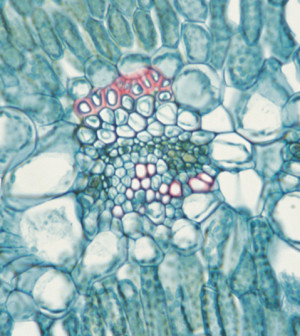- Could Your Grocery Store Meat Be Causing Recurring UTIs?
- Are You Making This Expensive Thermostat Error This Winter?
- Recognizing the Signs of Hypothyroidism
- 10 Strategies to Overcome Insomnia
- Could Artificial Sweeteners Be Aging the Brain Faster?
- Techniques for Soothing Your Nervous System
- Does the Water in Your House Smell Funny? Here’s Why
- Can a Daily Dose of Apple Cider Vinegar Actually Aid Weight Loss?
- 6 Health Beverages That Can Actually Spike Your Blood Sugar
- Treatment Options for Social Anxiety Disorder
Woman’s Thyroid Tumor Yields Clues on How to Battle Cancer


New gene mutations that were discovered in a thyroid cancer patient’s tumor provide clues to drug response and resistance, researchers report.
The 56-year-old female patient’s deadly form of thyroid cancer unexpectedly “melted away” for 18 months after starting treatment with everolimus (Afinitor), but then her tumor developed resistance to the drug.
The cancer spread to her lungs despite surgery, radiation and chemotherapy.
Researchers found two previously unknown gene mutations in the woman’s cancer. One mutation made the cancer extremely sensitive to the anti-cancer drug everolimus, while the other later triggered resistance to the drug.
A new drug of this type is about to be tested in clinical trials, and since the patient is still alive four years after her diagnosis she will receive the experimental treatment, the researchers said.
The study is published in the Oct. 9 issue of the New England Journal of Medicine.
The Dana-Farber Cancer Institute scientists said their findings show how checking an individual patient’s cancer DNA before treatment and again after cancer shows signs of drug resistance may help guide treatment.
“This is personalized, precision medicine at its best,” study senior author Dr. Jochen Lorch, a thyroid cancer specialist at the Head and Neck Treatment Center at Dana-Farber, in Boston, said in an institute news release.
“The study of patients with extraordinary responses can yield critically important insights,” study first author Dr. Nikhil Wagle, an oncologist at Dana-Farber, said in the news release.
“These studies could help us develop methods for matching patients to drugs, highlight effective uses for otherwise ‘failed’ therapies and design new therapeutic strategies to fight cancer,” Wagle explained.
More information
The American Cancer Society has more about thyroid cancer.
Source: HealthDay
Copyright © 2026 HealthDay. All rights reserved.










